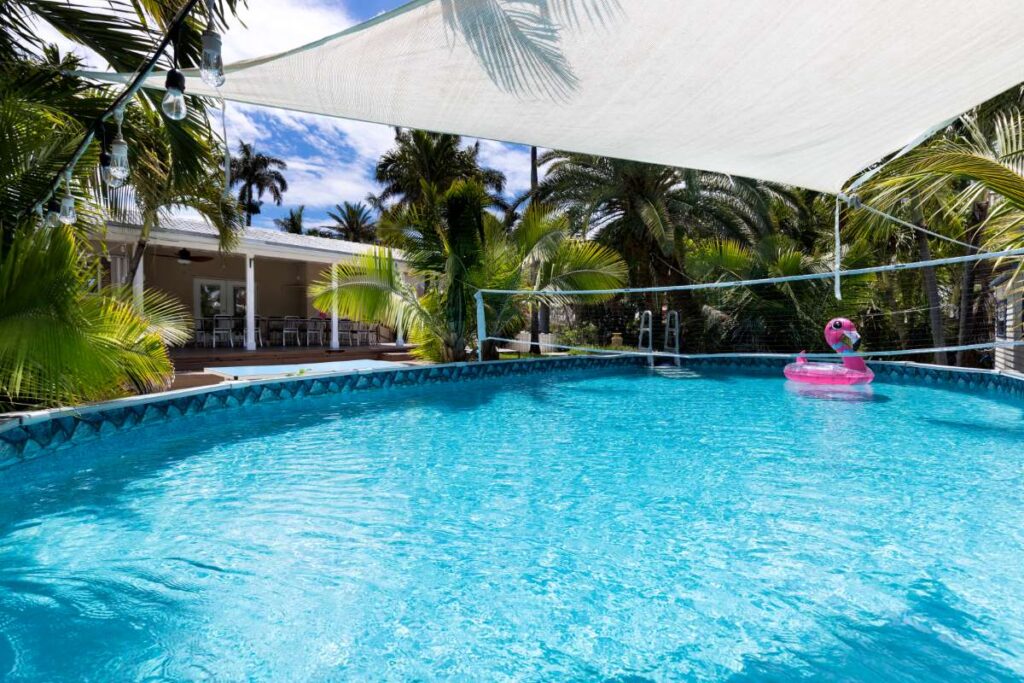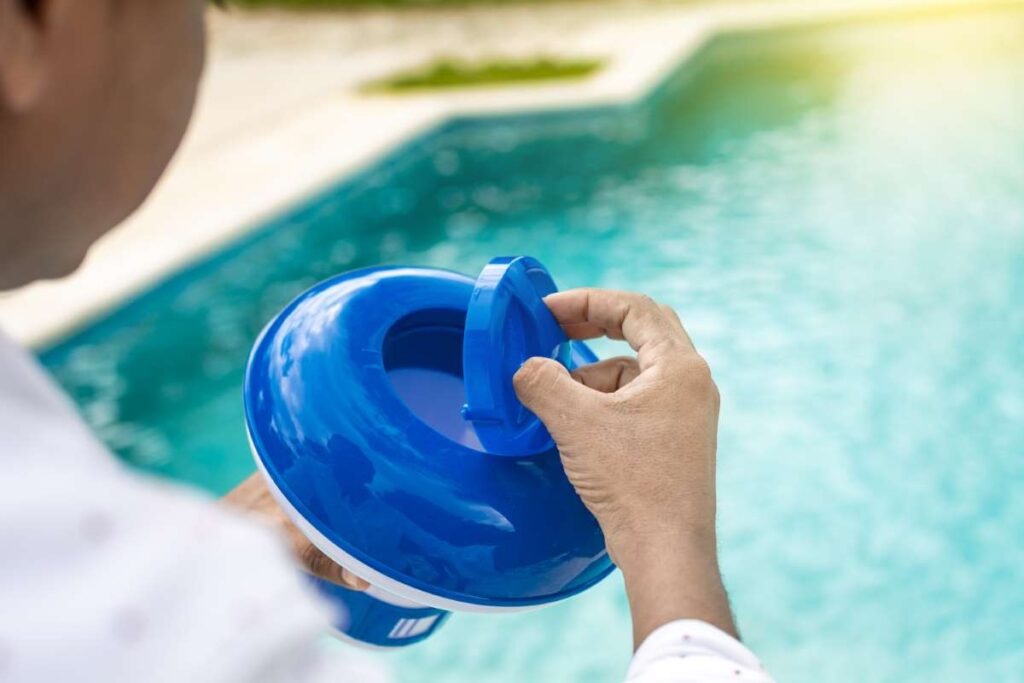How to Adapt Pool Care to Florida’s Seasonal Rainfall Patterns
Learn how to effectively adapt your pool care routine to Florida’s unique seasonal rainfall patterns for a healthy and clear swimming pool all year round.
Florida is known for its beautiful beaches, vibrant sunshine, and, unfortunately, its unpredictable rainfall patterns. For pool owners, particularly in Florida, understanding how to adapt pool care to these seasonal changes is crucial in maintaining a clean and safe swimming environment. This blog post will provide you with essential tips and strategies to handle your pool maintenance during the wet and dry seasons. We’ll also discuss how adjusting your care routines can help prolong the life of your pool and save you time and money in the long run.
The Impact of Florida’s Rainfall on Pool Maintenance
– Florida experiences a tropical climate characterized by a wet season from May to October and a dry season from November to April. This fluctuation in weather can significantly impact pool maintenance.
– One of the immediate effects of heavy rainfall is the dilution of pool chemicals. Rainwater, which is often acidic, can lower the pH levels in your pool, resulting in an imbalance that can promote algae growth and cloudiness.
– Additionally, heavy rains can lead to debris accumulation. Leaves, dirt, and other organic matter can enter your pool, making it crucial to adjust your cleaning routine.
– According to the Florida Climate Center, the state can receive anywhere from 5 to 10 inches of rain during peak months, so being proactive is essential.
To effectively manage these changes, here are some steps to follow:
1. Regularly Test Water Chemistry: During the rainy season, test your water chemistry more frequently. Aim for at least once a week. Keep an eye on pH, alkalinity, and chlorine levels to ensure they stay within the recommended ranges.
2. Adjust Chemical Levels: After significant rainfall, be prepared to add chemicals to counterbalance any dilution. A general rule is to wait 24 hours after heavy rain before adjusting chemical levels to allow the water to settle.
3. Increase Skimming and Vacuuming: After a rain, debris, leaves, and other materials often accumulate in pools. Skim the surface and vacuum the bottom more regularly during the wet season to keep your pool clean.
<h2:Strategies for Dry Season Pool Maintenance
– While the wet season can create challenges, the dry season also requires a distinct approach to pool care. With less rain, evaporation rates increase, sometimes leading to more concentrated chemical levels and fluctuating water balances.
– During the dry months, it’s vital to maintain water levels. If you notice a dip, refill your pool to ensure proper circulation and skimming.
Here are some strategies to help you during the dry season:
1. Monitor Water Levels: Regularly check your pool’s water level, especially after heavy use. If the water level drops significantly, top it off immediately to avoid damage to the skimmer and pump.
2. Adjust Filtration Schedule: Consider running your pump and filter longer during hot, dry days to help maintain water clarity. The recommendation is to run your pool pump for at least 8-10 hours daily during this season.
3. Implement Shock Treatments: The combination of heat and sunlight can lead to algae growth. Shock your pool every 2-4 weeks during the dry season to kill any emerging algae and bacteria. This ensures your pool remains a safe environment for swimming.
4. Cover Your Pool: If you are not using your pool regularly during the dry season, consider investing in a pool cover. This will help prevent debris from entering the water and reduce evaporation rates.
Utilizing Technology for Efficient Pool Care
– In today’s digital age, technology can play a pivotal role in pool maintenance, especially in adapting to Florida’s seasonal rainfall patterns. Smart pool devices can help you monitor your pool’s chemical levels and notify you when adjustments are needed.
– Automated pool cleaners can also save time and labor during the rainy season, ensuring your pool remains clean without the need for constant manual skimming.
Consider these technological advancements:
1. Smart Water Testers: Devices like the Blue Connect Plus or PoolSense can provide real-time water quality analysis directly to your smartphone, giving you peace of mind knowing your pool is always balanced.
2. Robotic Pool Cleaners: Investing in a robotic cleaner can help keep your pool free from debris with minimal manual effort. These devices can be programmed to clean your pool at regular intervals, ensuring it stays in top condition regardless of weather changes.
3. Automated Chemical Dispensers: Devices such as the iAquaLink or Hayward’s AquaTrol can help maintain balanced water by automatically dispensing the necessary chemicals, allowing you to enjoy a hassle-free swimming experience.
Best Practices for Pool Care During Florida’s Rainy Seasons
– Adopting best practices for pool maintenance can significantly enhance your pool’s longevity and cleanliness. Here are some additional tips to consider during the rainy months:
1. Keep Your Pool Area Clean: Regularly clean the surrounding area of your pool. This includes removing debris, leaves, and dirt that can easily blow into the pool during heavy winds and rain.
2. Install a Pool Cover: Using a pool cover during heavy storms can prevent debris from entering the water and save you cleanup time afterward.
3. Maintain Your Equipment: Regularly check and maintain pool equipment, including filters and pumps. Ensure that they are functioning correctly and are free from clogs or damage, which can be exacerbated by rainy weather.
4. Educate Yourself: Familiarize yourself with common issues associated with pool maintenance in wet seasons. Consider taking courses or training offered by professionals, such as those by Superior Pool Routes Training, which can enhance your knowledge.
5. Stay Informed About Weather Patterns: Keep an eye on local weather forecasts. Understanding the rainfall patterns can help you prepare for potential pool maintenance needs promptly.
Conclusion
In conclusion, adapting your pool care routine to Florida’s seasonal rainfall patterns is essential for maintaining a clean, safe, and inviting swimming environment. By understanding how rain affects your pool and implementing smart maintenance strategies, you can ensure that your pool remains in peak condition year-round.
Regularly test and adjust your pool’s chemical levels, maintain a consistent cleaning routine, and leverage technology to simplify your maintenance tasks. With the right approach, you can enjoy your pool to the fullest, regardless of Florida’s unpredictable weather.
If you’re looking to expand your pool maintenance business or become a pool service professional, consider exploring the Pool Routes For Sale offered by Superior Pool Routes. With unmatched training and support, you can ensure your success in this lucrative industry. For more information, feel free to visit our FAQ section or contact us directly for personalized assistance.



